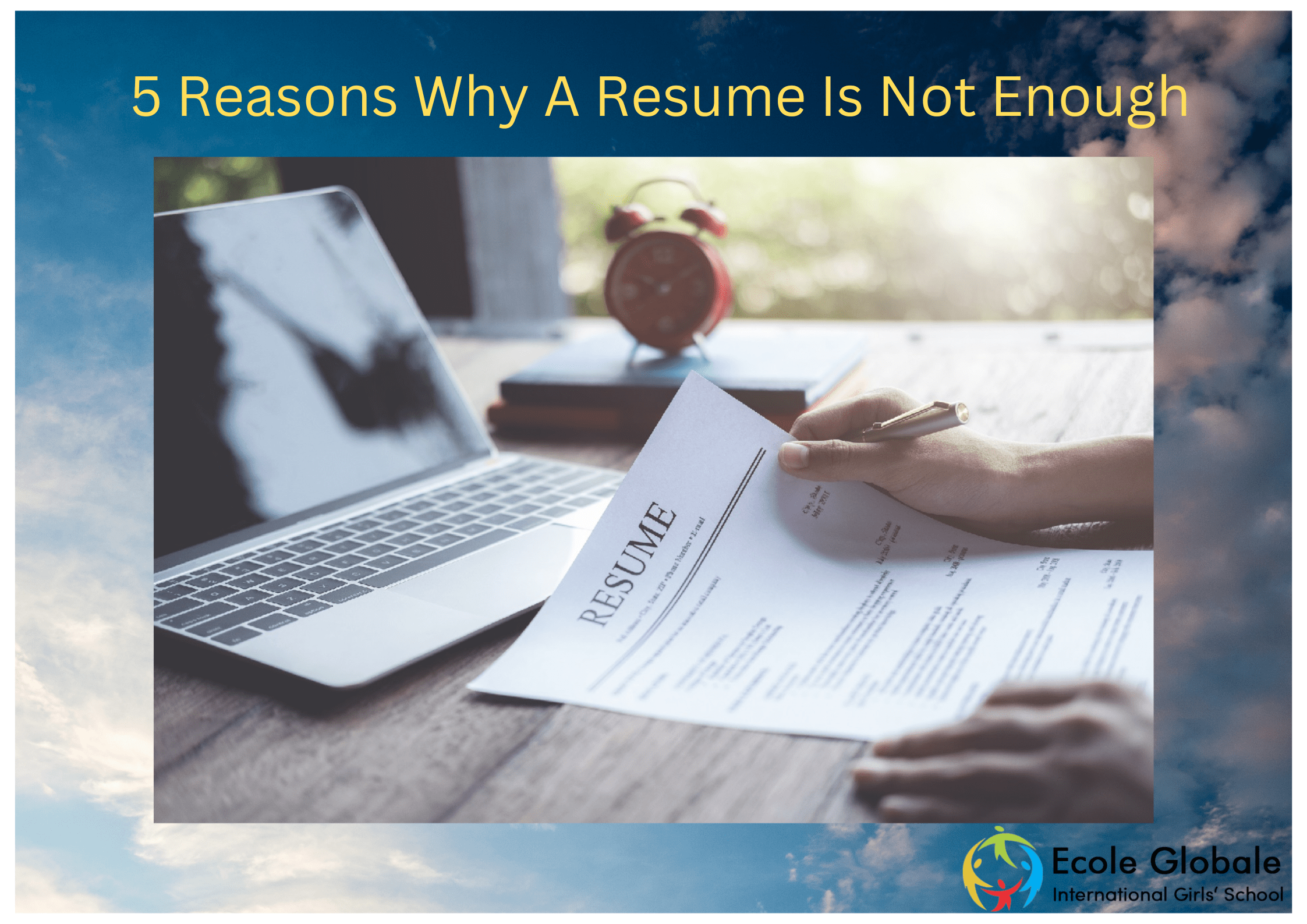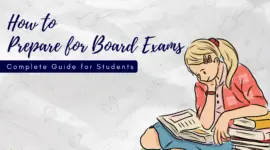A resume is a written summary of your professional skills and experiences, which you can use to apply for jobs. It should be concise, but it should also contain enough information about you to persuade the hiring manager to give you an interview.
A resume is an essential part of your job search, especially if you’re looking for something more than an entry-level position. It’s what employers use to figure out whether or not they want to talk to you about a job opening. That’s why it’s so important that your resume be as professional and polished as possible.
As per research conducted by Schools in Dehradun the purpose of a resume is to give employers a headstart on learning about you and what makes you unique. It should be able to do this in as few words as possible because people don’t have time to long read-winded or unfocused resumes.
Also Read: Things to include in your resume
Resumes are not Enough: Why?

Your resume is a document that you send to potential employers to show them what you have done and can do. It is not a complete portrayal of who you are, what you have learned, or what motivates you. It is important to remember that resumes are only one small part of the hiring process, and it is not enough for an employer to hire someone because they have the right skills on paper.
Here’s why resumes are not enough:
1.Not all the information is there
They’re not enough because they don’t tell the whole story.
A resume is like the cover of a book: it’s meant to be eye-catching and give you an idea of what you’ll find inside. But it doesn’t contain all the information—you have to read more than one page before you know what’s going on. A resume is a great tool for job seekers, but it’s not the only tool.
Resumes can only tell you so much about a person. For example, it doesn’t tell you if they are a good fit for your company’s culture or if they’ll be able to work well with your team. In addition, resumes don’t show who the person really is and what they’re really like as a person. This can make it difficult to know whether they will fit in with the rest of the team or if they’ll be able to get along with their co-workers.
2.A resume summarizes past performance
A resume summarizes past performance, but it does not predict future performance. The only way to know if you’ll be a good fit for the position is to talk to the person who will be your manager and find out what they’re looking for.
You may have done great work in the past, but that doesn’t mean you’ll be great in this role. You need to get on the phone and ask questions about what they need from you, why they chose this position, and what problems they’re trying to solve.
3.The recruiter doesn’t have an idea of your personality
Resumes are great for telling a recruiter about your work history and skills, but they don’t tell them about your personality.
That means that when a recruiter meets with you, they don’t know what to expect. They might be expecting someone polished and professional, or they might be expecting someone relaxed and casual.
By showing up as yourself in your interview, you’re letting the recruiter see who you are—and that can help them decide on whether they want to hire you or not.
4.You don’t have a chance to elaborate on your skills and experience
Resumes are not enough because you don’t have a chance to elaborate on your skills and experience.
The reason why resumes are not enough is that they don’t give you a chance to elaborate on the things that you want to show off. You can’t explain everything in a short amount of time, and so you end up leaving out important information that may have helped you get the job. Resumes are also limited by space, so if there’s something very important for the job but can’t fit on the resume, then it’s not going to make it into your application.
5.There is so much more than resumes and credentials
There is so much more to a person than their resume and credentials, and that’s why we need to look deeper when hiring new employees.
The resume is just the beginning of our search for the right fit. It’s the first step, but it’s not enough to make an informed decision on whether or not someone is right for our company.
We need to know who they are as people: what they’re passionate about, what makes them tick, what they value most in their lives, and why they chose this career path in the first place. These are all things you can find out during an interview—but only if you ask.
Conclusion
The fact is: that you need to go further than your resume to make sure you’re visible to recruiters and hiring managers. In today’s job market, you need a strategy for career visibility. Whether you’re networking on LinkedIn or portfolio-building on Behance, there are many steps that you can take to ensure you are visible to the right people.
As a result, I recommend you not rely on the resume alone to evaluate a candidate. I suggest asking for a portfolio or samples of work, and meeting in person with each candidate for around 30 to 60 minutes. You will get to know them better and will be able to determine if they are someone who could thrive in your environment.
For any queries related to parenting, schooling, or any student-related tips, click here to check out our latest blogs









